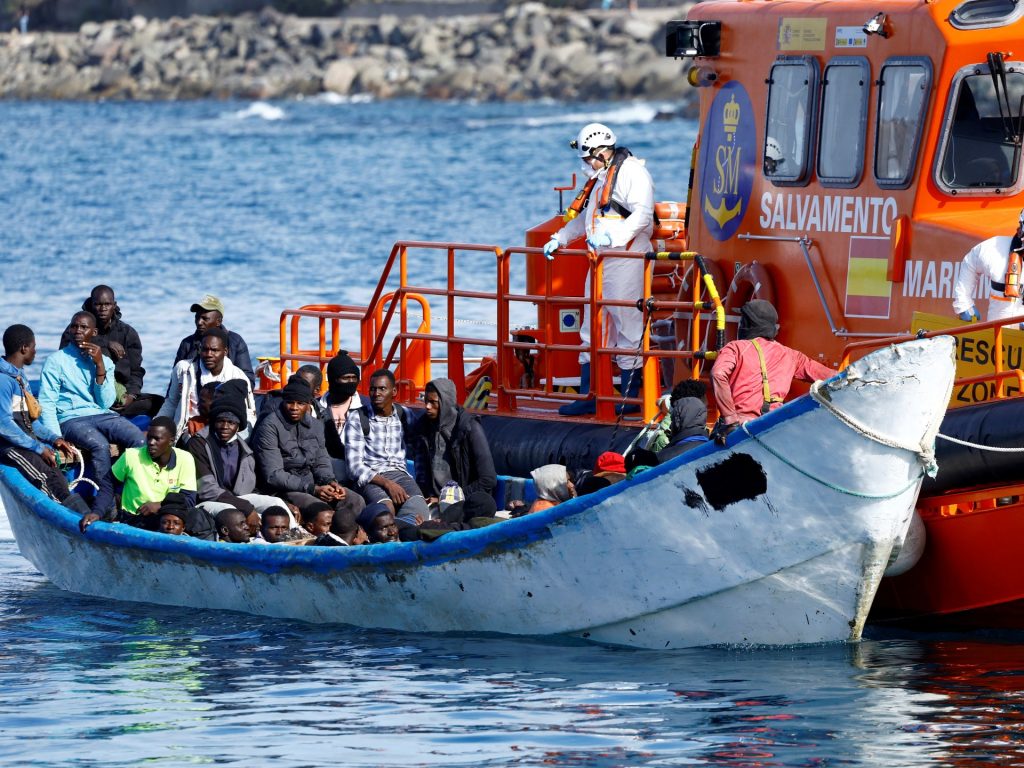The year 2024 witnessed a significant increase in irregular migration to Spain, with a total of 63,970 individuals arriving via unofficial routes, a notable rise from the 56,852 recorded in 2023. The Canary Islands emerged as the primary destination, receiving at least 46,843 of these migrants, highlighting the growing prominence of the perilous Atlantic migration route. This surge in arrivals via the Atlantic route contrasts with the overall trend observed across the European Union, where irregular crossings decreased by 40% between January and November 2024, according to the EU border agency Frontex. However, the same agency reported a concurrent 19% increase in crossings along the Atlantic route, primarily involving individuals from Mali, Senegal, and Morocco.
The alarming increase in Atlantic crossings can be attributed to a confluence of factors pushing individuals to undertake this dangerous journey. Conflict and instability across the Sahel region, coupled with widespread unemployment and the devastating effects of climate change on agriculture-dependent communities, create a desperate environment that compels many to seek new opportunities elsewhere. The allure of Europe, perceived as a haven of stability and prosperity, becomes a powerful motivator despite the immense risks involved.
The Atlantic migration route, encompassing departure points in Senegal, The Gambia, Mauritania, and Morocco, has gained notoriety as the world’s deadliest. The treacherous journey across the vast expanse of the Atlantic Ocean, often in overcrowded and poorly equipped vessels, exposes migrants to extreme weather conditions, navigational hazards, and the constant threat of capsizing. A tragic illustration of these dangers occurred in late 2024 when a boat carrying migrants from West Africa to the Canary Islands capsized off the coast of Morocco, claiming the lives of at least 69 people, including 25 Malians. This incident underscores the urgent need for enhanced safety measures and greater international cooperation to address the humanitarian crisis unfolding in the Atlantic.
The NGO Caminando Fronteras, dedicated to monitoring and documenting migrant fatalities, reported a staggering death toll on the Atlantic route in 2024. Their data reveals that at least 10,457 migrants perished or went missing attempting to reach Spain by sea between January 1 and December 5, 2024. This represents a devastating 50% increase compared to 2023 and marks the highest number of fatalities recorded by the organization since it began tracking data in 2007. Caminando Fronteras attributes this alarming surge in deaths to several critical factors, including the use of dilapidated and unsuitable boats, the inherently dangerous nature of the Atlantic waters, and insufficient resources allocated to search and rescue operations.
Further compounding the risks faced by migrants are accusations leveled against European governments by migrant aid organizations like Walking Borders. These organizations contend that a prioritization of immigration control over the preservation of life contributes significantly to the rising death toll. They point to instances of inadequate or delayed rescue efforts, as well as policies that criminalize migrants, creating an environment of fear and vulnerability that discourages individuals from seeking assistance when in distress. This alleged neglect of humanitarian obligations raises serious ethical questions about the balance between border security and the fundamental right to life.
The confluence of push factors driving migration from West Africa, the perilous nature of the Atlantic route, and the alleged shortcomings in rescue efforts have created a tragic humanitarian crisis. The significant increase in migrant arrivals in Spain and the Canary Islands in 2024, coupled with the devastating loss of life at sea, underscores the urgent need for a comprehensive and compassionate international response. Addressing the root causes of migration, improving maritime safety standards, bolstering search and rescue capabilities, and prioritizing the human rights of all migrants, regardless of their legal status, are crucial steps towards preventing further tragedies and ensuring safe and legal pathways for those seeking refuge and opportunity.










